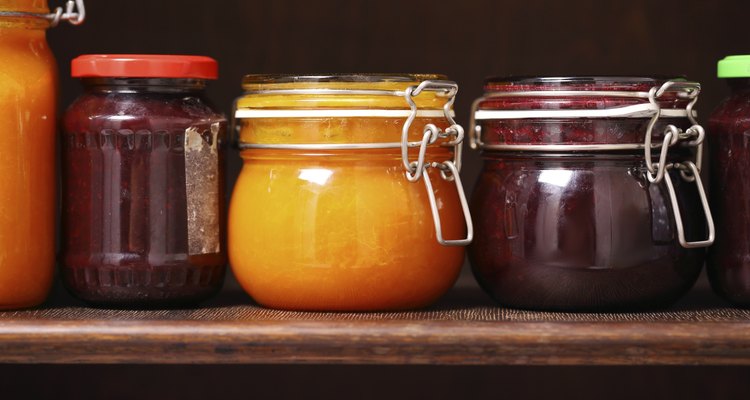
Gudella/iStock/Getty Images
Storing food for future use was a part of life for early Americans, but the growth of stores that offer fresh supplies up to 24 hours a day caused most people to stop storing their own food. Many people are reconsidering, as natural disasters, financial crises and political unrest grow. Emergency preparedness organizations such as the Red Cross recommend keeping two weeks worth of food stored, but many people prefer to stock up supplies for six months.
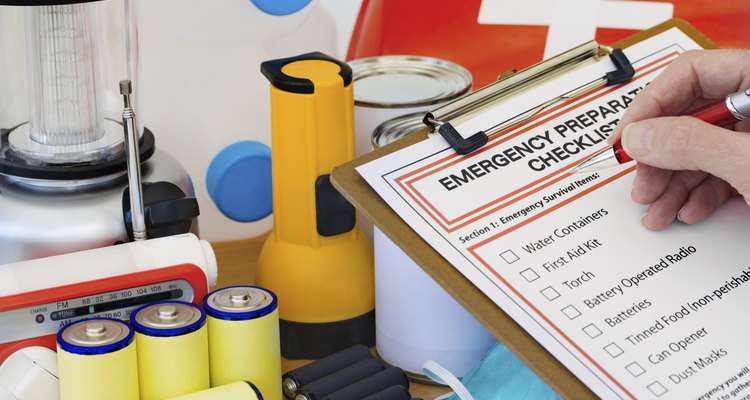
Pixsooz/iStock/Getty Images
Choose a cool, dry area that's easy to access for food storage. Use a root cellar, basement, spare bedroom or closet. You may want to keep some emergency supplies in a backpack or duffel bag in case you have to grab a few supplies quickly and relocate.

Danilin Vasily/iStock/Getty Images
Store bottled water bought from the store in factory-sealed water containers or prepare your own water for storage. The Centers for Disease Control (CDC) recommends storing 1 gallon of water per person and pet per day. To prepare your own water, wash, rinse and sanitize food-grade containers available at sporting goods stores or other retailers. Fill them with water and seal them tightly. Store in a cool, dry place for up to 6 months. Store some water purification tablets, which are inexpensive and can be found at sporting goods and drug stores.
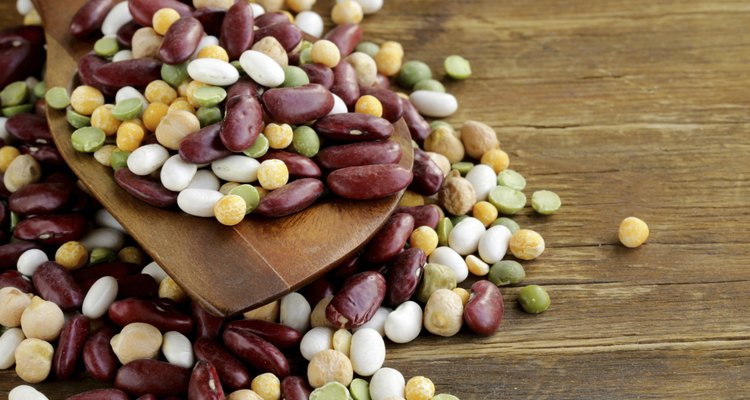
olgakr/iStock/Getty Images
Prepare an inventory list of food you need to stock. The Washington Military Department Emergency Management Division recommends storing an absolute minimum of the equivalent of two cans of food per person per day. The Food Guide Pyramid suggests that average daily guidelines for a healthy diet should include 3 to 5 servings of vegetables; 2 to 4 servings of fruits; 2 to 3 servings of milk, yogurt and cheese; 6 to 11 servings of bread, cereal, rice and pasta; 2 to 3 servings of meat, poultry, fish, dry beans, eggs and nuts; and occasional small amounts of fats, oils and sweets. Choose food that your family likes and ordinarily eats, and store it in the form that lasts the longest. According to the CDC, fresh fruit and vegetables are usually only good for a week or less, but stored canned fruit and vegetables can last up to a year. Boxed potatoes, powdered milk, crackers and dried fruit can be stored for six months, but should be repackaged into plastic food-grade storage containers or vacuum sealed with a food sealer. Powdered milk in nitrogen-packed cans lasts indefinitely. Buy grains, bouillon, soybeans, vegetable oil, dry pasta, instant coffee, tea, cocoa, salt and dried corn in bulk, as they can be stored indefinitely.
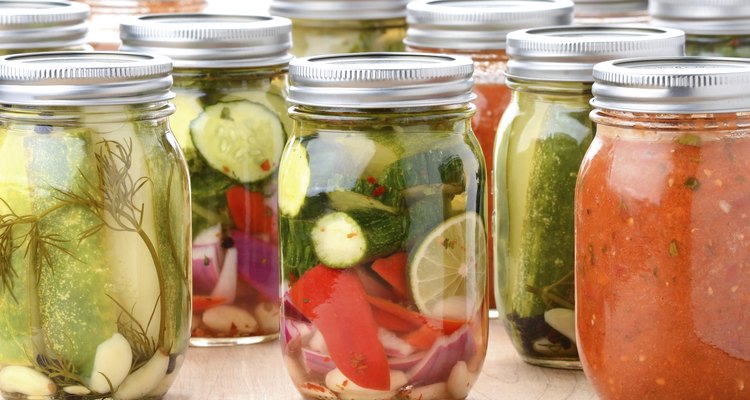
Ben6/iStock/Getty Images
Write the date on food containers with a permanent marker so you know how long the food is safe to eat. Place new food in the back and move older food to the front of your storage space. Use canned meat, soup, peanut butter, jelly, cereal, nuts and candy within a year of the storage date. Buy commercially prepared freeze-dried or air-dried food. Keep one or more manual can openers with the canned food. Include vitamins and food supplements in their original containers.
Related Articles
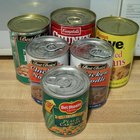
LDS Food Storage Recommendations

How to Store Dehydrated Foods
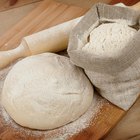
How to Store Flours & Grains Without ...

Food for Primitive Camping

If Meat Is Frozen, How Long Does It ...
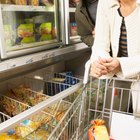
Shelf Life of Frozen Foods

Ideas for a Welcome Wagon
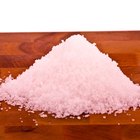
How to Use Sea Salt for Canning

Fruit & Water Diet

Bugs That Get Into Pantry & Food

Effective Ways of Recycling & Reducing ...

How to Buy Dried Seaweed

Does Canned Soup Go Bad?

Difference Between Powdered Vegetables ...

How to Cook a 1 1/2 Lbs Corned Beef ...
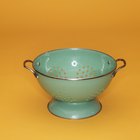
How to Soak Amaranth

How to Cook With Freeze-Dried Vegetables
Methods of Long-Term Food Storage for ...

Can You Freeze Spices & Herbs for ...
Longest Lasting Supermarket Foods for ...
References
- UGA College of Family and Consumer Science: Preparing an Emergency Food Supply
- New Jersey Office of Emergency Management: Emergency Food and Water Supplies
- American Red Cross: Emergency Water and Food Supplies
- Washington Military Department Emergency Management Division: How Much Food Do You Need?
- Mealtime: The Canned Food Alliance: Stocking Up for Emergencies
- Ask the Dietician: Food Guide Pyramid
Writer Bio
Cathryn Whitehead graduated from the University of Michigan in 1987. She has published numerous articles for various websites. Her poems have been published in several anthologies and on Poetry.com. Whitehead has done extensive research on health conditions and has a background in education, household management, music and child development.
Photo Credits
Gudella/iStock/Getty Images